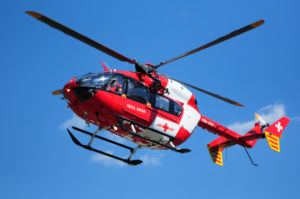Assumption of costs for care services
In order to minimize physical or psychological damage caused by an occupational disease or an accident at work, targeted and comprehensive treatment with the support of health insurance companies is always required.
An important basis for occupational accident insurance is therefore Article 10 UVG (Federal Law for Accident Insurance), according to which the right to adequate treatment is unlimited in terms of costs or duration. This service includes treatments by doctors, chiropractors and stays in the hospital if necessary.
In addition, thanks to the services provided by health insurers, those affected in Switzerland have the choice of which doctors and medical facilities they choose for treatment. The range of services includes the following services:
- outpatient or inpatient treatments
- dental therapies
- drugs
- analyzes
- cures
- Medical aids and aids (including prostheses, hearing aids)
In addition, the accident insurance covers up to a specified limit for any necessary transport and rescue costs as well as the transport costs for fatally injured policyholders and their burial.
Assumption of cash benefits
In addition to benefits in kind, the Swiss Accident Insurance pays cash benefits such as daily allowances, compensation payments or disability and survivor's pensions. In Switzerland, the daily allowance has proven itself as a wage replacement benefit that comes into force if there are no pension entitlements or the insured are not fully able to work again.
The reference figure is the last salary reached, from which policyholders receive a total of 80 percent of their last salary or partial amounts as daily allowance. Those affected are usually entitled to this right from the third day after their incapacity for work or the accident. The following example illustrates the entitlements to daily cash benefits:
- Wages before an accident at work: CHF 2,670
- of which full daily allowance (80 percent) or paid out (fully unable to work): CHF 2,136
- of which paid (70 percent unable to work): CHF 1,495.20
Details on the disability and survivor's pension
However, occupational diseases and accidents at work are also regularly the reason why insured persons are no longer fully employable or can no longer work. That is why accident insurance guarantees pension benefits in order to compensate for the loss of wages.
In order to assert these claims, insured persons are obliged to prove MdE - a reduction in their ability to work. The amount of the disability pension is based on the wages of the past twelve months. In the event of complete incapacity for work, there is a maximum pension claim of 80 percent of the assessment base.
Financial support for survivors
However, it is not only policyholders who benefit from Swiss accident insurance in the event of a claim. If the accident at work or occupational disability even leads to the death of the policyholder, spouses and surviving children may also claim the accident insurance under the law.
To receive a widow's or widower's pension, the surviving spouses must meet certain conditions. For example, you are entitled to a lifelong pension if the spouses have pensionable children at the time of the widowhood or if pensionable children live in the household of the widowed spouse.
In addition, the surviving children of the insured are entitled to a full or half-orphan's pension under Swiss law. The pension amounts are broken down into the following sentences:
- Widow's or widower's pension: 40 percent
- Orphan's pension: 25 percent
- Half-orphan's pension: 15 percent
However, the total amount of all pension claims must not exceed the maximum of over 70 percent of the total earnings of the deceased. Claims arising from divorced spouses are calculated at 20 percent of earnings and increase the maximum to up to 90 percent. However, the prerequisite for this is that the insured person would have had to pay maintenance during the insured event.
Who is automatically insured under accident insurance?
All employees are generally insured with accident insurance in Switzerland. This regulation also applies to homeworkers, apprentices, interns, volunteers, people working in apprenticeship or disability workshops, cleaning staff and domestic workers. In contrast, the self-employed or inactive people such as pensioners, housewives, students and children are not insured.
For this reason, these groups of people are well advised to take out compulsory health insurance against accidents. If the weekly working time at an employer is less than eight hours, these workers are only covered against occupational diseases and accidents. In this case, non-occupational accidents are excluded from insurance cover.
It's worth it health insurance comparison? For sure! Click here now and find the right insurance!







